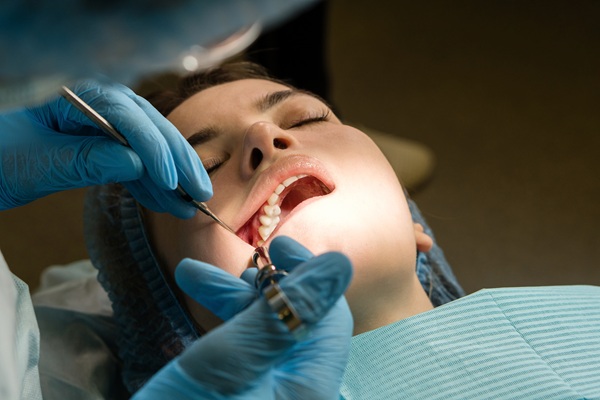Wisdom Teeth Removal: What to Know

Although has somewhat become a rite of passage for kids around the time they go off to college, often people still approach the procedure with apprehension and many questions. But not to worry; wisdom tooth removal is a simple and straightforward process.
Since wisdom teeth are the last to erupt later in a person’s mouth, many people do not have enough information to determine whether the wisdom teeth will become an issue, especially if they do not go for regular dental checkups. Understanding the process of wisdom tooth eruption can make dealing with the problem more manageable.
When wisdom teeth removal is necessary
Unless the patient is experiencing pain, they may be confused about why the dentist suggested removing their wisdom teeth. Wisdom teeth are the last set of molars to erupt at the furthest part of the jaw. Many people do not have sufficient jaw space to accommodate the wisdom teeth. Also, caring for the teeth could be bothersome and difficult because of their position in the mouth. This can cause tooth decay, gum disease, and infections.
The second (or “twelve-year”) molars, directly in front of the wisdom teeth, are vital for chewing food, but they may be adversely affected by an impacted wisdom tooth behind them. In some cases of impaction, an opening develops in the gum tissue, trapping food particles, which will lead to decay and sometimes the loss of a vital tooth.
Wisdom teeth removal, when indicated, is best done when the patient is younger—on average, during the late teens or early twenties. This is typically because their body has a greater ability to quickly recover from the procedure. Additionally, people in their late teens and early twenties do not usually have complete root formation of the wisdom teeth, which reduces the risk of harming adjacent structures such as the sinus and nerves.
Wisdom teeth removal: what it entails
Before wisdom teeth removal, the patient will need to book an appointment with the dentist or oral surgeon to take x-rays and discuss the details of the treatment, along with anesthesia options. Most dental practices offer local anesthesia to numb the treatment area. However, some practices also offer sedation options like nitrous oxide (laughing gas), oral or IV sedation, or general anesthesia. Wisdom teeth removal is more invasive than routine dental procedures like fillings, so some patients prefer to undergo sedation to remain calm and comfortable. That said, sedated patients will need to have someone drive them home since they will not be able to operate a motorized vehicle after being under anesthesia.
Once the patient is numb, the dentist will remove the wisdom teeth. They may need to section the teeth into smaller pieces to make the removal process easier. After removing the wisdom teeth, the dentist will place gauze on the area to help the area stop bleeding. The patient will need to bite on it and use ice packs to reduce swelling.
Over the next couple of days, the patient will need to consume a soft diet. Over-the-counter pain medication can help the patient manage their pain and inflammation. Within a week, the soreness and jaw stiffness should have subsided, and the patient will be able to return to their usual routine. Additional visits may be necessary to ensure the area is healing properly.
Learn more about wisdom teeth removal
La Grange Dental Studio offers wisdom teeth removal in the western Chicago suburbs, including La Grange, Western Springs, Hinsdale, Burr Ridge, Countryside, Riverside, Brookfield, and more. Call our office to learn more about the process or to schedule an appointment. We look forward to hearing from you.
Request an appointment here: https://lagrangedentalstudio.com or call La Grange Dental Studio at (708) 247-2322 for an appointment in our La Grange office.
Check out what others are saying about our dental services on Google: .
Related Posts
Are you thinking that a tooth extraction is in the near future? While it is ideal to save your natural teeth, sometimes a dental professional cannot save a damaged or infected tooth. When one or more of your teeth are not savable, you need to have them extracted from your mouth. Once the tooth is…
Dental implants are a newer option for replacing missing teeth. They involve a titanium screw inserted into the jawbone, and then months later, once the jawbone has healed and the screw is fused into the bone, a crown is attached to the screw.It can be expensive to get dental implants, but since they offer full…
There are many options for replacing missing teeth that don’t include regular dentures. Implant-supported dentures are an affordable option compared to regular dentures and are better for your health. They can improve your diet, confidence, and overall health. These implants don’t require or use anything except clips to keep them in place. It can improve…
Dental implants are a popular option for replacing missing teeth. While they offer the same aesthetic benefits as other replacement options, there are multiple other benefits provided by dental implants that alternatives fail to deliver.One crucial component of a dental implant is a titanium screw that is placed directly into the jawbone. The screw forms…
